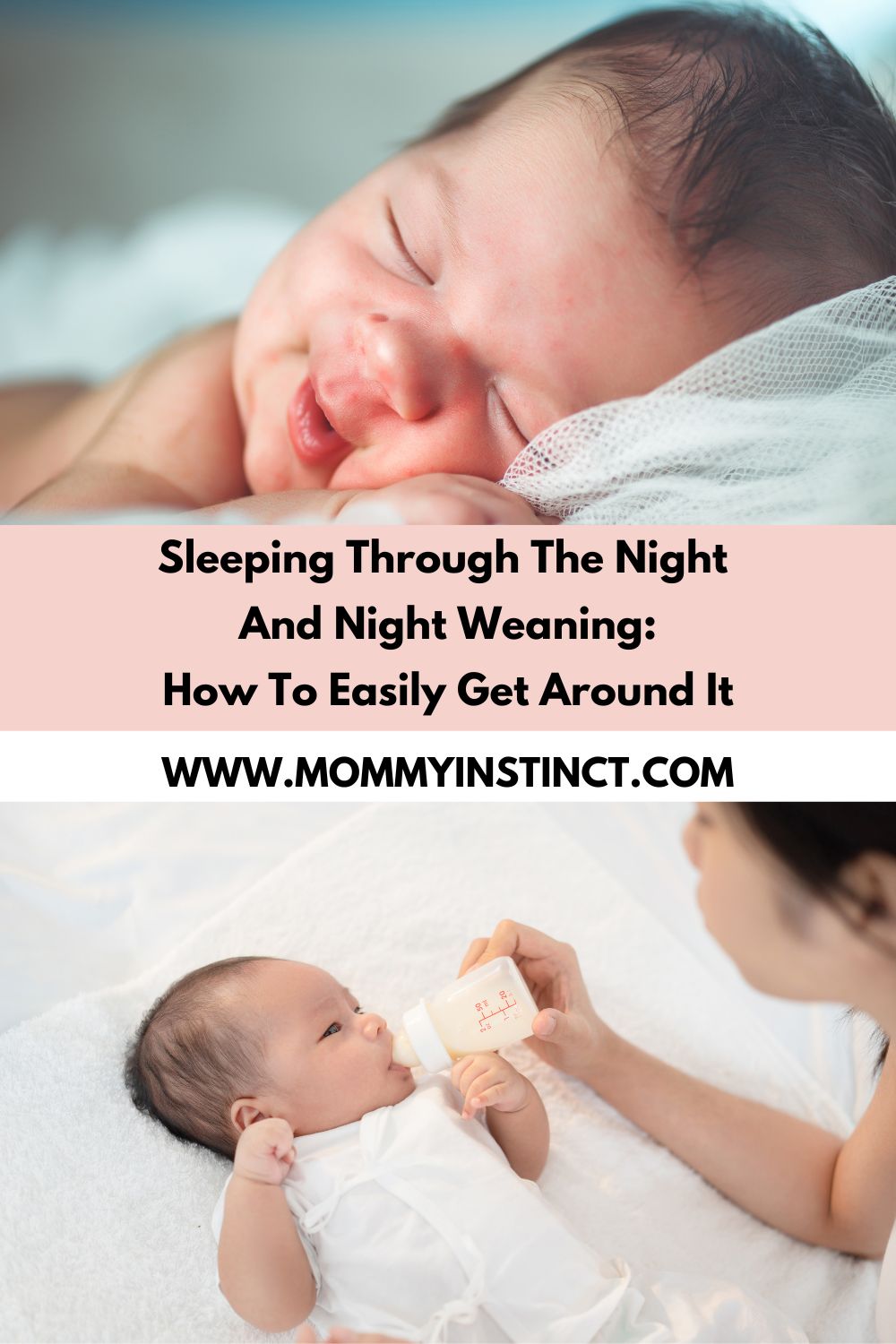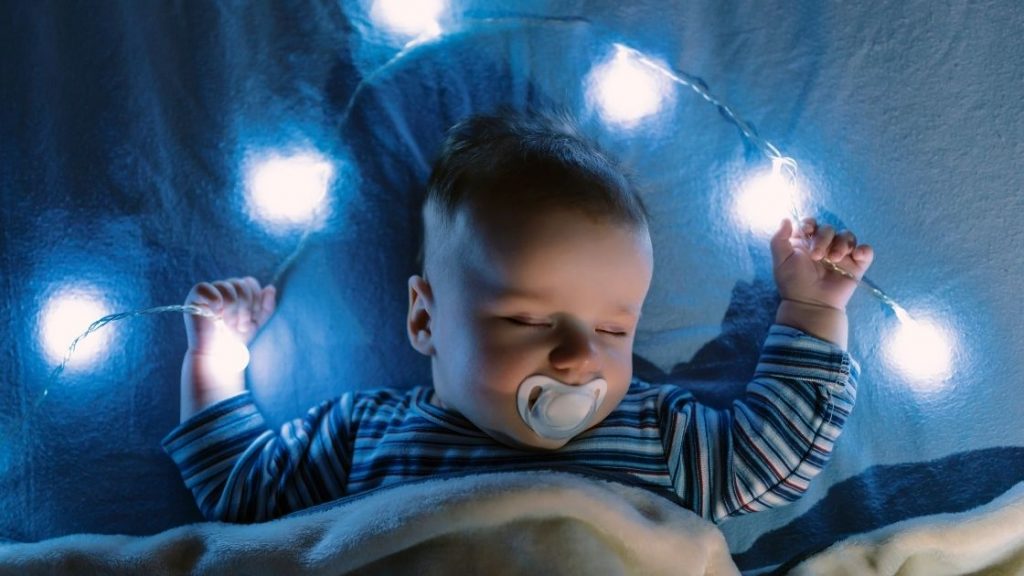Are you wondering what sleep training and night weaning are? There are many questions that people have about nighttime routines. The tricky thing about weaning babies is that you're trying to establish a new routine and make it work.
If you're reading this article, there's a good chance something inside wants an explanation and guides to sleep training without night weaning. I have written this article to answer your questions and help you make sense of the topic.
Sleep Training And Night Weaning

Sleep training and night weaning are two very different things. Sleep training is a natural, positive way of helping your baby learn to self-soothe. Night weaning is another way of encouraging your baby to sleep through the night on its own.
Sleep training and night weaning are the most common methods pediatricians, and parents use to help toddlers learn how to fall asleep independently.
Sleep training
Sleep training is a gradual process that occurs over several weeks or months. It involves gradually removing one source of comfort from your baby until they learn to fall asleep without it and teaching your baby to fall asleep and stay asleep without your presence.
This can include removing a dummy, bottle, or breast at bedtime and leaving them in their crib with nothing else until they fall asleep. Sleep training aims to remove unnecessary distractions from a baby's bedroom so that he can learn how to fall asleep on his own.
Night weaning
Night weaning is designed for parents who have already successfully introduced their baby to sleep in a daytime nappy or crib but still struggle with falling asleep during the night because of separation anxiety or other issues caused by prolonged weaning.
Night weaning is when you gradually stop allowing your baby to nurse during the night. It is transitioning a child from breastfeeding to formula or solid foods at night. The reason for this is that your baby has outgrown the need for breastfeeding and can go on to solid foods.
Sleep training and night weaning are two practices that can help babies learn to sleep through the night. The process of night weaning is gradual and is not the same as sleep training. It involves gradually reducing the number of night feeds.
The good news here is that if you prefer either option—weaning without sleep training or sleep training without night weaning—you have control over the time each takes!
How sleep training and night weaning affect the sleep cycle and the baby’s health

A baby’s sleep cycle is divided into two stages: REM (rapid eye movement) and non-REM (also known as deep sleep).
The American Academy of Pediatrics recommends putting babies down for naps no longer than 30 minutes at a time, and for them to develop into healthy adults, they must have a minimum of 12 uninterrupted hours of sleep each day.
If a child does not get enough restful sleep, this can cause problems for both you and your baby, such as:
The reason all those problems happen is that your baby's sleep cycle is directly related to the way they are breastfeeding. Both sleep training and night weaning affect the sleep cycle and the baby’s health.
Can You Start Sleep Training Without Night Weaning?
Many parents still wonder “Can you sleep train and still night feed?”. When you are sleep training your baby, they are still in a very vulnerable state. Your baby is not used to sleeping through the night yet and, as a result, may wake up in the middle of the night for no apparent reason, and you must get them back into a routine as soon as possible.
You can sleep train without weaning. It’s not ideal, but it is possible. The reason it’s not ideal is that you will deprive your baby of the same nighttime routine that they had before. You’re introducing a new routine, and it takes time to adjust to it.
It takes a lot of patience and consistency. Many parents find their babies sleeps better if they don't completely stop breastfeeding at night. There are many benefits to night feeding, including:
How To Start Sleep Training Without Night Weaning
You can sleep train babies, even if they are still on breast milk.

How Can I Calm My Baby At Night Without Breastfeeding?
The answer is that there are several ways to soothe your little one back to sleep without breastfeeding. If you decide not to night feed as part of sleep training, then you'll have to be prepared for every time she wakes up. Here are some tips to help your baby:
Establish good habits
By setting a routine, giving specific times for each nap and bedtime, and then following the schedule and sticking with it.
Before bedtime
Is Night Weaning Necessary?
Night weaning can indeed be an emotionally hard process for you and your child. But don't let this discourage you from continuing to work toward it. Night weaning is a gradual process that often takes months.
The first step is making sure there is enough time between feedings and naps during the day so that your baby doesn't get overtired at bedtime (for example, don’t feed her right before she goes down).
Then try limiting nighttime feedings by one every three nights until they are eventually phased out completely. To keep things from getting too stressful for either of you (or yourself), be patient with each other; remember that no one enjoys being hungry or tired!

Conclusion
Sleep training without night weaning is a tough method to achieve a new night routine for your child. There is no magic solution to solving night weaning woes. It's a tough transition for both parents and child that requires patience, understanding and lots of love.
However, we hope this article has answered questions you may have about sleep training and whether it’s necessary to night wean. If your little one is ready for sleep training, just remember it might take some time before they are fully off nighttime feedings, so be patient!

